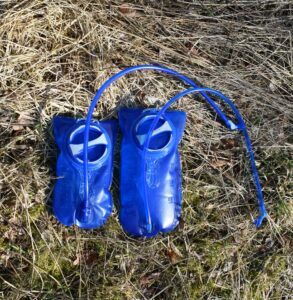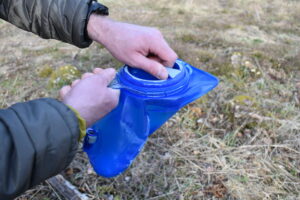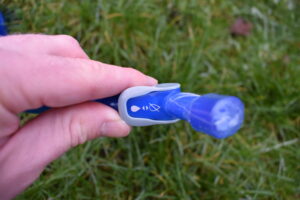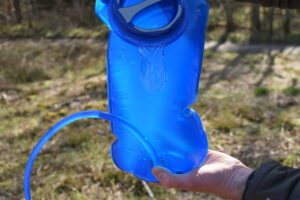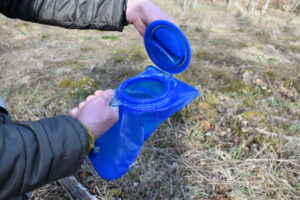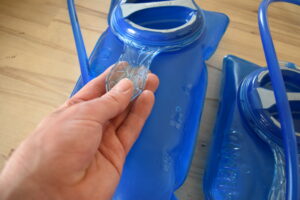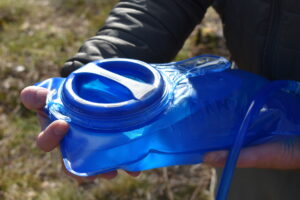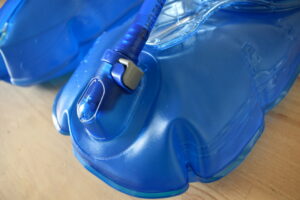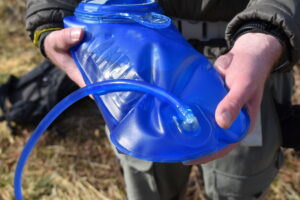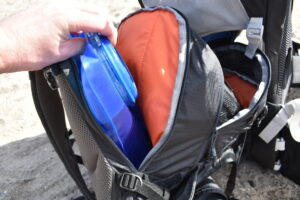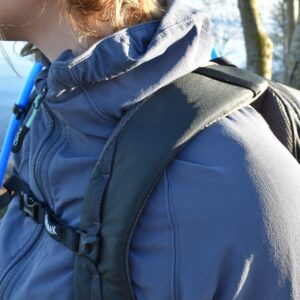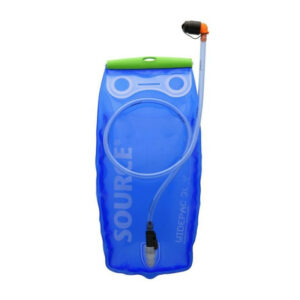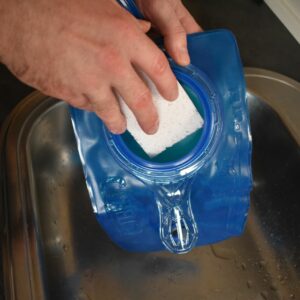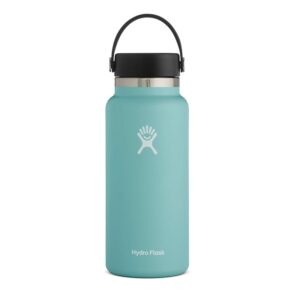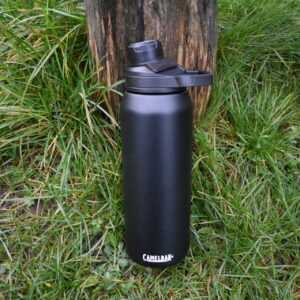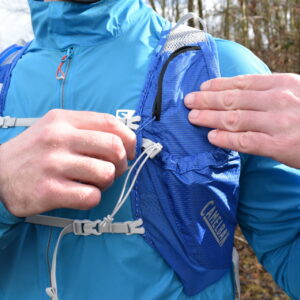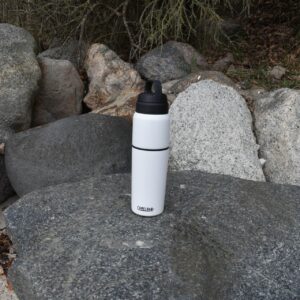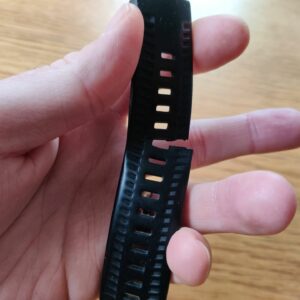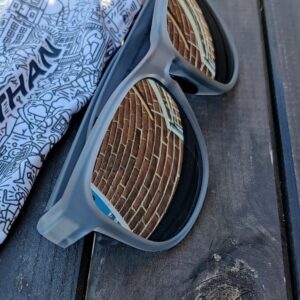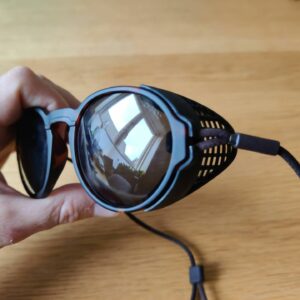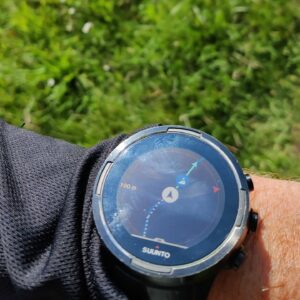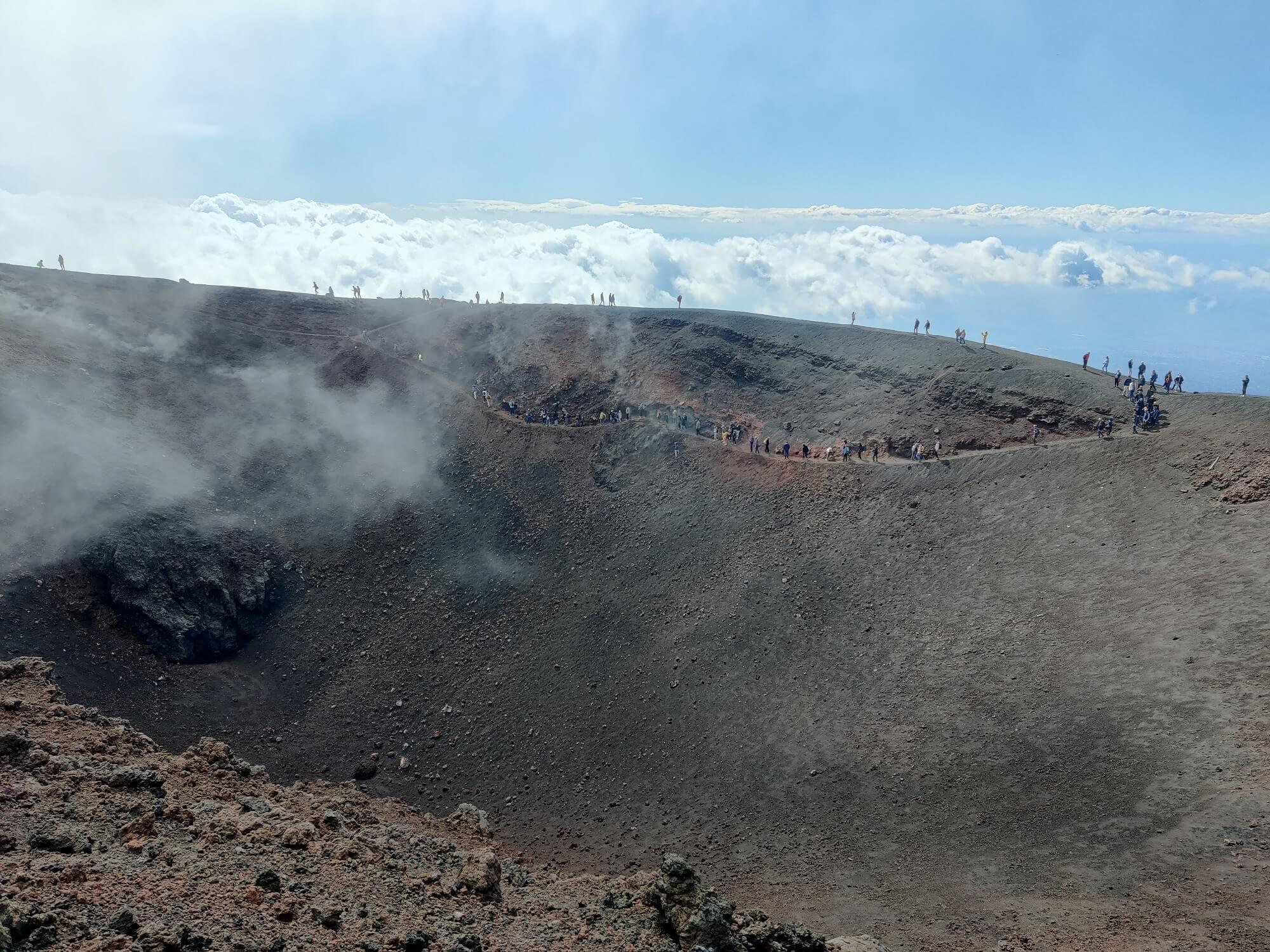CamelBak is a synonym for high-quality hydration gear such as hydration packs, running vests, bottles and of course also hydration reservoirs. At the end of last year, me and Laura received the Rim Runner backpack and Circuit hydration vest for testing. Both products came with Crux hydration reservoirs. The Rim Runner came with a 2.5-liter (85 oz) Crux hydration reservoir while the Circuit vest came with the 1.5-liter (50 oz) version. While testing the backpack and the vest we naturally also tested both hydration reservoirs and decided that it’s best to write a separate review about them. Besides the sizes we received, the CamelBak Crux hydration reservoir is also available in 2-liter, 3-liter and lumbar 3-liter version. Nevertheless, the different versions essentially differ only by the volume, except for the lumbar reservoir which is shaped a bit differently to fit in a lumbar waist pack.
For the last four months we’ve been regularly using both Crux reservoirs for running, hiking and biking. Below is what we learned about them.
The Basics
The Crux reservoir is made of BPA/BPS/BPF free material and when I unwrapped it, I was surprised how light it is. I expected the reservoir to be heavier because it has a screw top and a handle. Nevertheless, the material is very thin, and this significantly reduces the weight. At first, I was a bit worried that this could cause durability issues. However, so far, we haven’t had any problems with the reservoirs although we’ve been using them regularly for quite some months.
The 1.5-liter version is small and compact, and thus best for long distance running and short hikes. However, it also fits in our Osprey Poco child carrier which has a very narrow entry to the hydration sleeve. I’m really happy about this as I had no chance of getting my old 3-liter hydration reservoir in there. The 2.5-liter version is bigger and a good choice for hiking, mountaineering, backpacking, biking and similar sports. I was surprised that CamelBak doesn’t sell this size of the Crux reservoir separately. It seems to be available only with Rim Runner and Helena packs. Unfortunately, we haven’t had a chance to test the 3-liter version but that’s the one you should go for if you already have a backpack and need a hydration reservoir for lengthy activities.
Practicality and Features
When I started using the CamelBak Crux hydration reservoir I quickly noticed several very neat features which make it much more practical. The reservoir is equipped with a volume indicator, on/off lever, filling handle and a hook at the top. With the on/off lever you can completely close the water flow to prevent leakages. Since the hydration reservoir has a bite valve, this is indeed a useful feature. The bite valve opens the flow of water when you apply pressure to it (by biting down on it) and can thus potentially be triggered if you place heavy things on it. I’m really happy about the on/off lever as it happened to me before that a hydration bladder leaked in the trunk of my car as a result of heavy things being placed on top of it and thus pressing on the bite valve.
Another useful feature is the filling handle which is just under the screw top. This handle makes filling the reservoir super easy, and in the Rim Runner backpack it can also be used for hooking the reservoir onto the rigid loop inside the hydration compartment. The hydration bladder also has a hook at the top of the lid so you can attach it to a hydration sleeve/pocket of most backpacks.
The Crux reservoir has a screw top, which was something new for me because all my previous hydration reservoirs instead had a wide opening at the top. Nevertheless, I was satisfied with the screw top as the handle beneath it makes filling the Crux reservoir even easier than a hydration reservoir with wide opening. The downsides are that the hydration reservoir is a bit wider in depth and is slightly harder to clean.
The tube is detachable on all versions of Crux hydration reservoirs except on the 2.5-liter version. I don’t know why CamelBak made an exception here. Although joints are usually some of the first things to malfunction, I really like the idea of detachable tube because it can be cleaned thoroughly if mold appears in it, and replaced if it malfunctions.
Cleaning and Maintenance
The screw top of the CamelBak Crux is relatively big and thus it’s possible to clean the hydration reservoir on the inside. Nevertheless, you will have to use a brush with a handle, unless you have super tiny hands. I can’t get my hand through the entry and thus cleaning it with a sponge is out of the question. Nevertheless, I don’t consider this a big problem.
The material of Crux reservoir and tube is treated with Hydroguard technology which prevents the growth of bacteria in the reservoir and the tube. We haven’t had any problems with bacteria/mold so far. However, we have been storing both reservoirs in the freezer most of the time. That’s a neat trick I learned years ago, and since then I never had problems with mold in tubes or reservoirs. At first, I was a bit worried that this will cause durability issues but so far none of my hydration reservoirs got damaged. It is, however, a good idea to let the reservoir and tube defrost a bit before you start to handle and/or fill it.
Verdict
I’m very satisfied with the CamelBak Crux hydration reservoir. I really like the handle which makes filling the reservoir super easy. The bite valve also functions very well and provides fast water flow without too much effort. I also find the on/off lever super handy as it prevents accidental leakages during the transport. There are only two things that bothered me: The first being that the tube is quite stiff, and second that the reservoir can’t be cleaned with a sponge because the opening isn’t wide enough. Nevertheless, these are minor things and all in all I’m very happy with it.
If you have any questions about this product, drop me a line in the comments below.
Rating
| Design |  |
| Quality |  |
| Features |  |
| Functionality |  |
We field tested this product. The rating shows its overall performance.About Rating
Pros:
- Handle for easy filling
- Fast water flow rate
- On/off lever
- High-quality materials
- Attachment point at the top
Cons:
- Relatively stiff tube
- A bit harder to clean than water reservoirs with wide opening
